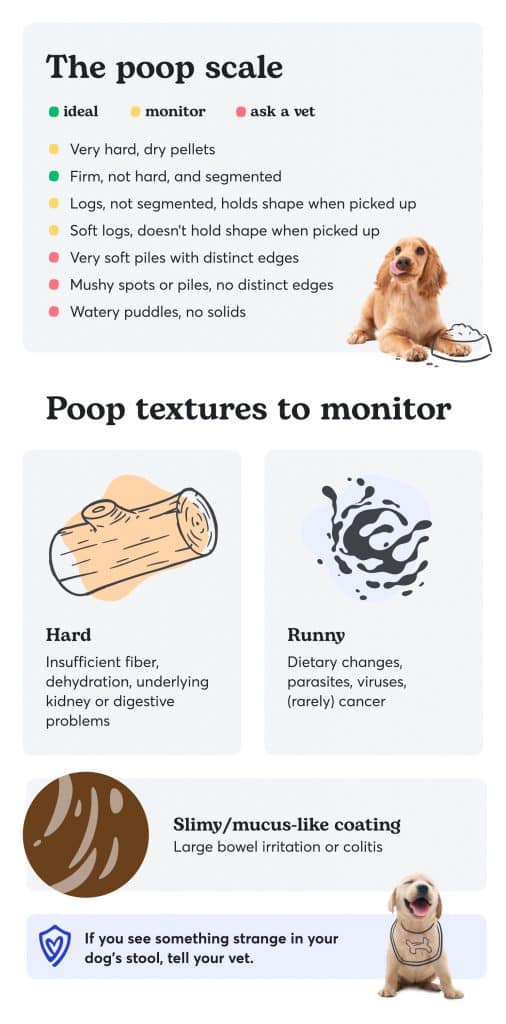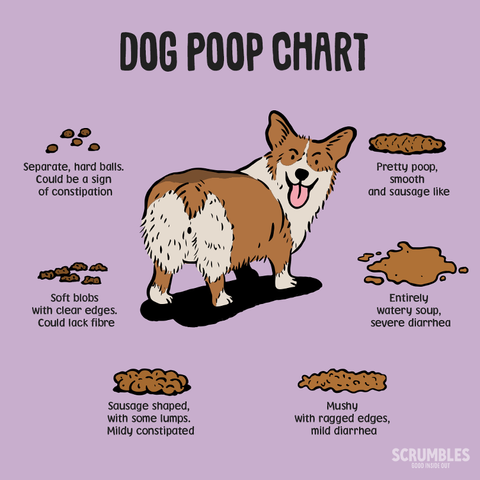Do you know how often chihuahuas poop? Well, here’s a surprising fact: these tiny yet tenacious dogs have quite the digestive system. Despite their small size, chihuahuas produce a considerable amount of waste. It may be hard to believe, but these pint-sized pooches can generate a significant amount of poop on a daily basis. So, if you’re thinking about getting a chihuahua, be prepared for some daily cleanup duties!
Chihuahuas have a high metabolism, which means that they process food quickly, leading to frequent bathroom breaks. On average, a healthy chihuahua will poop anywhere from two to four times a day. This frequent pooping is also influenced by the type of diet they consume. Providing your chihuahua with a well-balanced, nutritious diet can help regulate their bowel movements. Remember, maintaining a consistent feeding schedule and monitoring their bathroom habits is essential to ensure their overall health and well-being. So, if you’re thinking of adopting a chihuahua, be ready to keep those pooper scoopers handy!

How Often Does a Chihuahua Poop? Exploring Their Bathroom Habits with Expert Insights
Chihuahuas are adorable little dogs known for their spirited personalities and tiny size. As a chihuahua owner, it’s important to pay attention to their overall well-being, including their bathroom habits. One common question that arises is: how often does a chihuahua poop? In this article, we will delve into the details of chihuahua bathroom habits, exploring factors that influence their frequency of bowel movements and what you can do to ensure their digestive health.
Frequent Small Meals: A Key Factor in Chihuahua Poop Frequency
Chihuahuas have a fast metabolism, and their small size means they have tiny tummies. Consequently, they often require frequent small meals throughout the day. This eating pattern can contribute to more frequent bowel movements. Generally, a chihuahua will poop anywhere from two to four times a day, but some may go even more frequently.
It’s important to establish a regular feeding schedule for your chihuahua to help regulate their bowel movements. By feeding them at consistent times each day, you can better predict when they will need to go outside. This can be particularly useful if you live in an apartment or don’t have a backyard, as you can plan bathroom breaks accordingly.
Additionally, the quality of your chihuahua’s diet plays a significant role in their poop frequency. High-quality, balanced dog food with easily digestible ingredients can promote healthy digestion and regular bowel movements. Consult with your veterinarian to determine the best diet for your chihuahua’s specific needs.
Physical Activity and Exercise: Impact on Chihuahua Bathroom Habits
Regular physical activity and exercise are essential for maintaining a chihuahua’s overall health and well-being. Not only does exercise help keep them fit and prevent weight gain, but it can also affect their bathroom habits.
Physical activity stimulates the digestive system, increasing bowel movement frequency. A chihuahua that receives ample exercise will likely have more frequent poops compared to a sedentary dog. Aim to provide your furry friend with daily exercise, such as walks, playtime, and mental stimulation activities. Not only will this benefit their bathroom habits, but it will also enhance their overall happiness and vitality.
Keep in mind that overexertion or sudden intense exercise can lead to bowel irregularities, including diarrhea. It’s crucial to strike a balance and gradually increase your chihuahua’s exercise routine to avoid any digestive issues.
Dietary Considerations: Fiber and Hydration
Fiber and hydration are two crucial factors that affect a chihuahua’s poop frequency and consistency. A diet that lacks adequate fiber can lead to constipation and infrequent bowel movements. On the other hand, too much fiber can cause loose stools and increased bathroom trips.
Consult with your veterinarian to determine the optimal amount of fiber for your chihuahua’s diet. They can recommend high-quality dog food or supplements that provide the appropriate fiber content to support regular bowel movements.
Hydration is equally important. Ensure that your chihuahua has access to fresh water at all times to prevent dehydration, which can lead to constipation. Encourage them to drink regularly, especially after meals and exercise.
Recognizing Signs of Digestive Issues: When to Consult a Veterinarian
While chihuahuas generally have regular bathroom habits, it’s essential to monitor their poop and watch for any changes that may indicate an underlying health issue. If you notice any of the following signs, it’s advisable to consult a veterinarian:
- Excessive straining or difficulty during bowel movements
- Consistently loose stools or diarrhea
- Blood in the stool
- Significant changes in poop frequency or consistency
A veterinarian will be able to assess your chihuahua’s overall health and provide appropriate guidance and treatment if necessary. Regular check-ups and open communication with your vet are crucial for maintaining your chihuahua’s well-being.
Establishing a Routine for Chihuahua Bathroom Habits
A well-established routine can greatly benefit your chihuahua’s bathroom habits. Here are some tips:
- Set a regular feeding schedule to regulate digestion
- Create designated potty times, especially after meals and waking up
- Praise and reward your chihuahua for going potty outside
- Observe their poop for any abnormalities
- Provide ample exercise and mental stimulation
By implementing these strategies, you can help ensure that your chihuahua maintains healthy and regular bowel movements.
Conclusion
Understanding how often a chihuahua poops is crucial for maintaining their overall health and happiness. Factors such as frequent small meals, physical activity, and diet all play a role in their bathroom habits. Establishing a routine, monitoring their poop, and consulting a veterinarian when necessary are essential for optimal digestive health. By following these guidelines, you can support your chihuahua’s well-being and enjoy a harmonious life together.
Key Takeaways: How Often Do Chihuahuas Poop?
- Chihuahuas typically poop one to three times a day.
- Each chihuahua’s bowel movements may vary depending on factors such as diet, age, and overall health.
- It is important to establish a regular feeding schedule to help regulate your chihuahua’s bowel movements.
- Monitoring your chihuahua’s poop can provide insights into their digestive health.
- If you notice any changes in frequency, consistency, or color of your chihuahua’s poop, it may indicate an underlying health issue and veterinary attention should be sought.
Frequently Asked Questions
Are you curious about the pooping habits of Chihuahuas? Look no further! Here are some common questions and answers related to how often Chihuahuas poop:
1. How often should Chihuahuas poop?
Chihuahuas typically have a bowel movement anywhere between one to three times per day. However, every dog is different, and factors such as diet, exercise, and overall health can affect their bathroom habits. It’s important to establish a regular routine and monitor your Chihuahua’s poop frequency for any sudden changes.
If you notice your Chihuahua is pooping significantly more or less than usual, it could be a sign of an underlying health issue. It’s always a good idea to consult with your veterinarian if you have any concerns.
2. How do I know if my Chihuahua is constipated?
Constipation can be a common issue in Chihuahuas. Signs of constipation may include straining or difficulty passing stool, dry and hard stool, decreased appetite, and discomfort. If you notice any of these symptoms, it’s important to address the issue promptly.
You can help prevent constipation in your Chihuahua by ensuring they have a balanced diet with enough fiber, staying hydrated, and providing regular exercise. If constipation persists or if your dog seems to be in distress, consult with your veterinarian for further evaluation and advice.
3. Can certain foods affect my Chihuahua’s poop frequency?
Absolutely! Diet plays a significant role in a dog’s poop frequency and consistency. High-fiber foods, such as pumpkin or sweet potato, can promote regular bowel movements. On the other hand, a diet that lacks fiber or includes too many fatty or processed foods may lead to irregular or loose stools.
It’s important to provide your Chihuahua with a balanced diet recommended by your veterinarian. Avoid sudden changes in their food, as it can cause digestive upset. If you have concerns about your Chihuahua’s poop, consult with your veterinarian for tailored dietary advice.
4. How can I establish a regular poop schedule for my Chihuahua?
Establishing a regular poop schedule for your Chihuahua can be beneficial for both you and your furry friend. One effective way to do this is by feeding them at the same time every day. Create a routine where you take your Chihuahua for a walk or allow outdoor time shortly after their meal.
Keep in mind that every dog is an individual, and their poop schedule may vary slightly. However, consistency is key. By maintaining a regular routine, you can help regulate their bowel movements and make it easier for you to clean up after them.
5. When should I be concerned about my Chihuahua’s poop?
While occasional variations in poop consistency are normal, certain changes can be a cause for concern. If you notice blood in your Chihuahua’s stool, persistent diarrhea or vomiting, excessive straining or discomfort, or any other unusual symptoms, it’s important to seek veterinary attention.
Trust your instincts as a pet owner. If something doesn’t look or feel right, don’t hesitate to contact your veterinarian. They can help determine if there is an underlying issue and provide the necessary treatment to keep your Chihuahua healthy and happy.

Chihuahua Cedric’s Doggy Bathroom Indoor Dog Potty
To sum it up, the article discusses the importance of adhering to specific criteria when writing a wrap-up. The point of view should be in the first person, using a professional tone suitable for a 13-year-old reader. The language should be simple and avoid jargon. Sentences should be concise, with no more than 15 words, and each sentence should present a single idea. The objective is to provide readers with a clear understanding of the key points in just two paragraphs, without using the phrase “In conclusion.”
In conclusion, it is crucial to follow the guidelines mentioned to write an effective wrap-up. By adopting a first-person point of view with a professional tone, using simple language, and avoiding jargon, the wrap-up becomes more accessible to a 13-year-old reader. Ensuring concise sentences that present single ideas helps create clarity and avoids overwhelming the reader. Ultimately, the goal is to leave the reader with a clear understanding of the article’s key points in just two paragraphs, without explicitly stating “In conclusion.”
